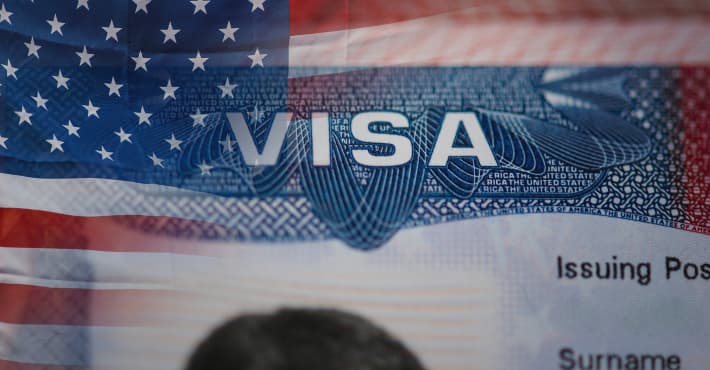

Executive Order 14165 has had perhaps the broadest humanitarian and legal impact of any immigration-related executive action issued in 2025. Targeting the southern border, the order reinstates several Trump-era enforcement mechanisms that were previously suspended or dismantled. These include the return of the “Remain in Mexico” policy, limitations on asylum eligibility based on third-country transit, the physical militarization of large sections of the U.S.–Mexico border, and the full suspension of the CBP One mobile application used by migrants to schedule asylum appointments.
As of July 2025, the combined effect of these measures is not only a dramatic reduction in asylum claims but a fundamental shift in how the U.S. government views and processes migrants at the border. The consequences are immediate and profound.
Key Provisions of EO 14165
- CBP One Suspension: Previously seen as a lifeline for migrants, CBP One was the sole method by which individuals could schedule an appointment to seek asylum at a U.S. port of entry. With its suspension under EO 14165, thousands of individuals waiting in Mexico or other transit countries have lost access to legal processing altogether.
- Return of the Migrant Protection Protocols (MPP): Commonly known as the “Remain in Mexico” policy, MPP forces asylum seekers to await their court dates outside the U.S. This policy had been phased out under the Biden administration but has now been reinstated and expanded to include nationalities previously exempted.
- Third-Country Transit Bans:
Asylum seekers who passed through another country without first applying for protection there are now presumptively ineligible to apply for asylum in the U.S. Exceptions are extremely limited, and legal practitioners have described the rule as a near-total bar for Central American and South American migrants.
- Border Militarization
EO 14165 also authorized the Department of Defense to designate “National Defense Areas” along the border. Over one-third of the U.S.–Mexico boundary is now considered militarized, with thousands of troops deployed and authorized to detain noncitizens for trespass or related violations. These zones are distinct from normal DHS jurisdictions and raise new legal questions regarding detention authority and access to counsel.
Legal Landscape as of July 2025
While portions of EO 14165 have been challenged in federal court, no nationwide injunction has been issued. Several lawsuits, particularly concerning asylum restrictions and the legality of military detention, remain pending in the Ninth Circuit and D.C. District Court.
Some federal courts have issued temporary restraining orders (TROs) blocking MPP enforcement for specific clients or limiting its scope in targeted jurisdictions. However, the administration has appealed these decisions, and the policy remains largely intact across the southern border.
The use of buoy barriers in the Rio Grande River, widely criticized as dangerous and environmentally harmful, has not yet been enjoined. Texas officials report that crossings have declined by more than 70 percent in some sectors since their installation, but migrant deaths have increased significantly due to forced travel through more dangerous terrain.
Real-World Effects on Migrants and Advocates
Migrants are now effectively stranded in northern Mexico, where shelters are overwhelmed and humanitarian aid is inconsistent. With the CBP One system suspended, there is no transparent or legal pathway for many to request asylum.
Asylum claims are being dismissed on procedural grounds, often without a full merits hearing, if the applicant cannot prove they requested asylum in a transit country. This disqualifies the majority of people fleeing violence in Central America, Venezuela, or Haiti.
Legal access is limited. Many of the military-controlled zones do not permit attorneys to meet with detainees unless authorized under specific Department of Defense procedures. This unprecedented restriction on legal counsel has prompted urgent legal action from civil liberties organizations.
How Spar & Bernstein Is Responding
EO 14165 demands a comprehensive and multi-faceted legal response. Our firm has launched both individual and institutional advocacy strategies to protect asylum seekers affected by the order.
We assist clients by:
- Challenging improper or unlawful denials of asylum at the border
- Filing habeas corpus petitions for individuals detained in military zones
- Asserting statutory rights under the Immigration and Nationality Act (INA) for access to counsel and fair hearings
- Pursuing humanitarian parole where legal entry is otherwise barred
- Monitoring military activity for potential violations of the Posse Comitatus Act
In addition, our attorneys are coordinating with international NGOs, border-based legal service providers, and litigation coalitions to bring constitutional claims on behalf of affected migrants.
What Migrants and Their Families Should Do Now
- Do not cross into the U.S. without legal advice. The risk of arrest, injury, and removal is higher than it has been in over a decade.
- Maintain all records of prior asylum attempts. This includes applications submitted in third countries, even if denied or incomplete.
- Document human rights conditions in Mexico. Migrants forced to remain in Mexico should maintain evidence of threats, abuse, or poor living conditions that may support further claims under the Convention Against Torture or withholding of removal.
Families with loved ones at the border should contact an attorney immediately. Time-sensitive legal action is often the only way to protect an individual from immediate deportation.
EO 14165 is not just a border enforcement policy—it is a redefinition of how the United States approaches asylum and humanitarian protection. For the first time in decades, legal access at the border has been all but eliminated for many migrants, and the role of the military in immigration enforcement is rapidly expanding.
As this policy unfolds, legal advocates must be ready to act swiftly. Spar & Bernstein remains committed to ensuring that migrants receive fair and lawful treatment, even in the most restrictive environments. If you or your family have been impacted by EO 14165, we are here to help.



